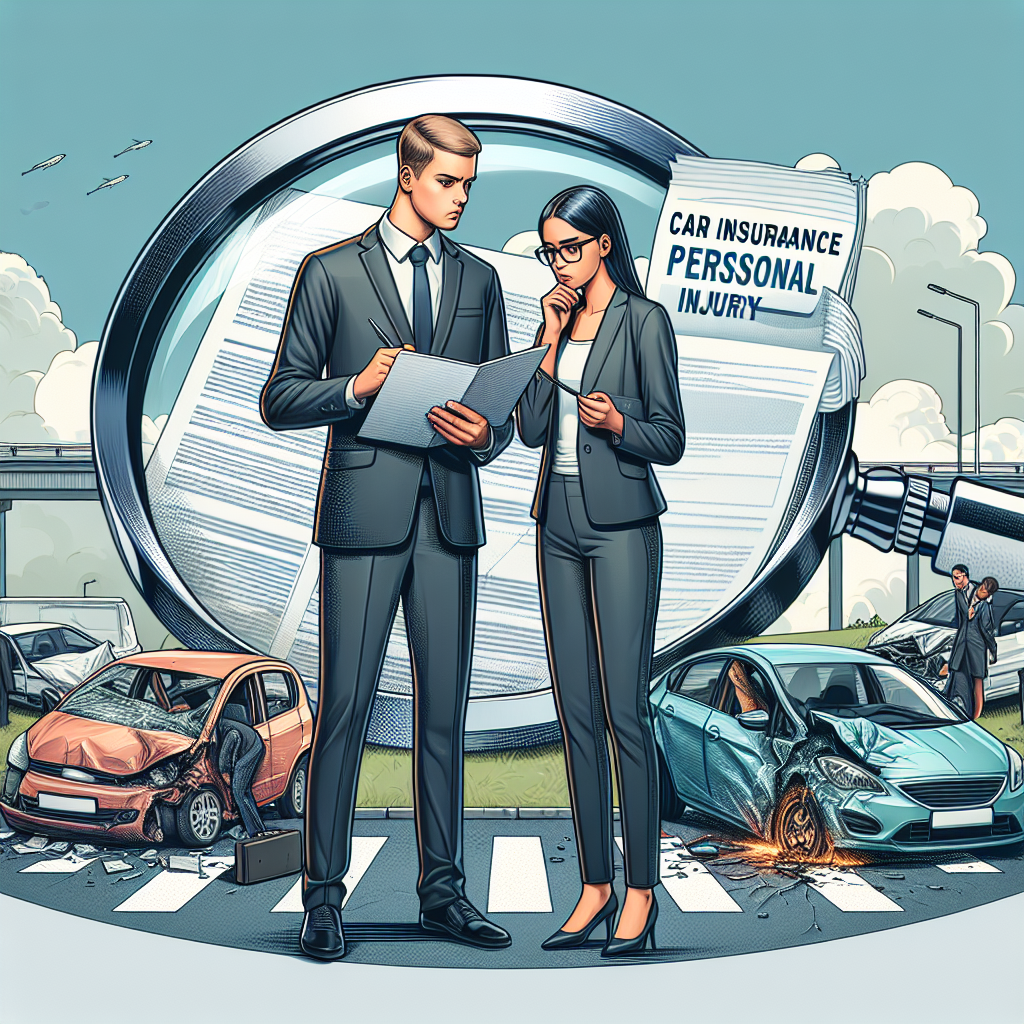Navigating the landscape of car insurance and personal injury claims can feel overwhelming. Whether you’re a seasoned driver or a new car owner, understanding how coverage works is essential. In this article, we’ll break down the intricacies of car insurance, how it relates to personal injury, and what you need to know to ensure you’re adequately protected.
What is Car Insurance?
Car insurance is a contract between you and an insurance company that provides financial protection in the event of an accident, theft, or damage to your vehicle. There are several types of coverage available, and understanding each one is crucial in the case of a personal injury claim.
Types of Car Insurance Coverage
-
Liability Coverage
This is often mandated by law and covers injuries and damages you cause to others in an accident. -
Collision Coverage
This type of insurance covers damages to your vehicle resulting from a collision, regardless of fault. -
Comprehensive Coverage
This protects against non-collision-related damage, such as theft, vandalism, or natural disasters. -
Uninsured/Underinsured Motorist Coverage
This ensures you are protected even if the at-fault party doesn’t have adequate insurance. - Personal Injury Protection (PIP)
PIP covers medical expenses and lost wages for you and your passengers, regardless of fault, making it crucial in personal injury situations.
The Link Between Car Insurance and Personal Injury
When it comes to auto accidents, personal injury claims typically arise when someone is injured due to another party’s negligence. In these scenarios, your car insurance can significantly influence the outcome of a personal injury case.
Understanding Personal Injury Claims
A personal injury claim after a car accident allows an injured party to seek compensation for medical expenses, lost wages, rehabilitation costs, and, in some cases, pain and suffering. Here’s how your car insurance plays a role:
How Liability Coverage Works
If you are found at fault in a car accident, liability coverage will help cover the medical expenses and lost wages of the injured party. This coverage is essential not only for fulfilling legal obligations but also for safeguarding your financial future.
The Role of Personal Injury Protection (PIP)
PIP is invaluable as it covers your own medical expenses and those of your passengers, regardless of fault. This means that even if you are responsible for the accident, you won’t be left to foot the medical bills on your own.
State Regulations and Their Impact
Each state has different laws and minimum requirements for car insurance coverage, especially concerning personal injury claims. Some states operate under a "no-fault" law, meaning that your PIP coverage would come into play before you can pursue any claims against the at-fault driver.
Choosing the Right Coverage
When selecting a car insurance policy, it’s crucial to assess your coverage options—especially regarding personal injury. Here are some tips to help you choose the right policy:
-
Evaluate Your Needs
Consider factors like how often you drive, your health insurance coverage, and your financial situation to determine the appropriate levels of coverage. -
Understand Your State’s Requirements
Research your state’s minimum insurance requirements and any additional coverages that may be beneficial, especially regarding PIP. - Seek Multiple Quotes
Don’t settle for the first quote you receive. Comparing multiple providers can help you find the best insurance that meets your needs at a competitive price.
What to Do After an Accident
If you are involved in a car accident, understanding how to navigate the aftermath is crucial:
-
Gather Information
Obtain details from the other party, including contact information and insurance details, and collect witness statements if possible. -
Notify Your Insurance Company
Report the accident to your insurance provider promptly, as they will guide you through the claims process. -
Seek Medical Attention
Even if you believe you are uninjured, it’s essential to have a medical professional evaluate your condition to avoid long-term complications. - Document Everything
Keep records of medical treatments, correspondence with your insurance provider, and any other relevant documentation to support your personal injury claim.
Conclusion
Understanding car insurance in relation to personal injury claims is vital for every driver. By familiarizing yourself with the different types of coverage, knowing your state’s regulations, and preparing for the unexpected, you can ensure you are well-covered in case of an accident.
In the end, being informed is your best defense against financial hardship and stress following a collision. With the right car insurance and a proactive approach, you’ll feel confident on the road and secure in the knowledge that you’re prepared for whatever comes your way.
Call to Action
If you haven’t reviewed your car insurance policy lately, now is the perfect time to do so. Take the necessary steps to protect yourself, your passengers, and your financial future. Reach out to your insurance agent today for a policy review!


